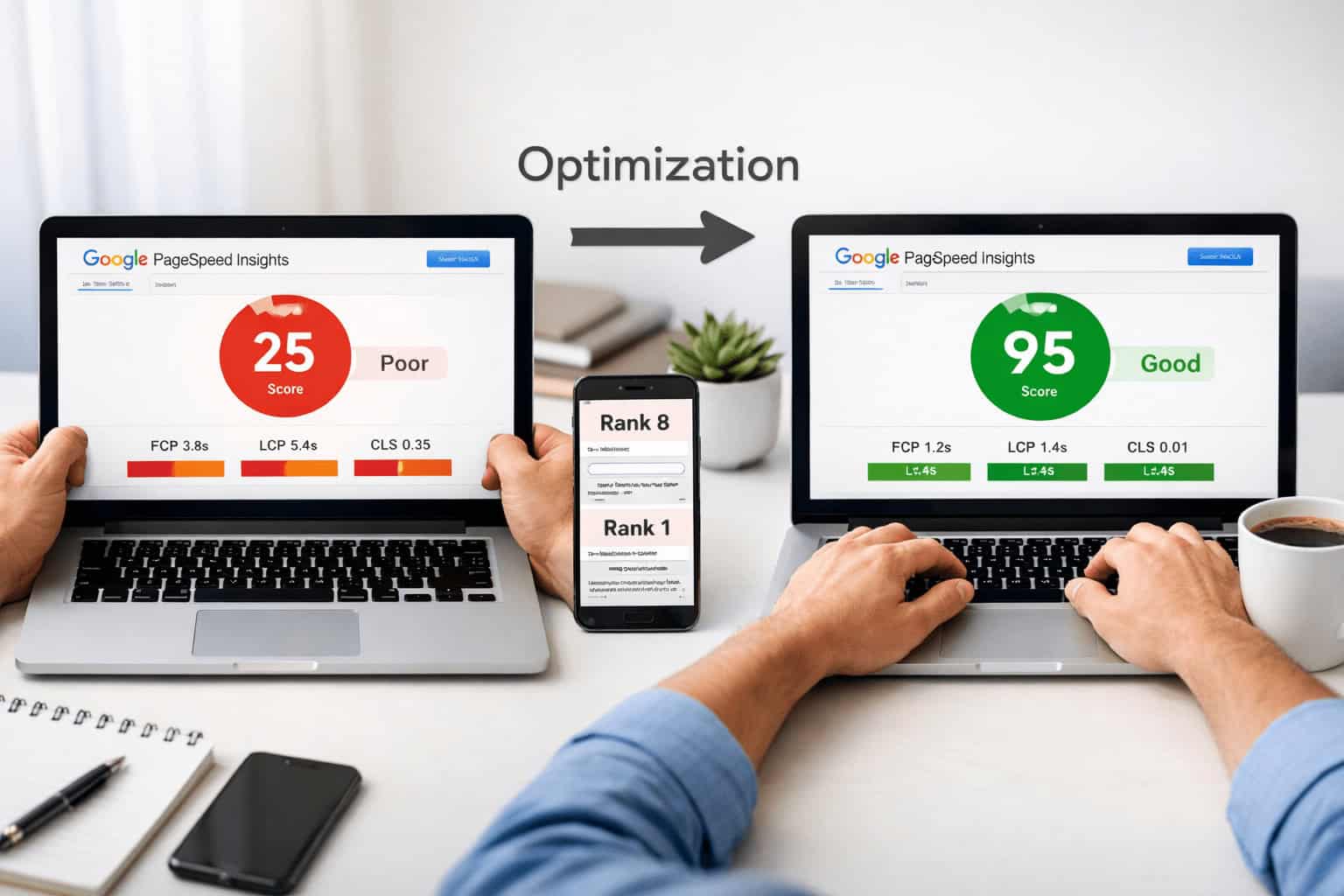If you’ve been paying attention the last year or so to what’s been going on to your business website analytics, you might have seen significant fluctuations in your rankings and website traffic. Especially if the recent results are alarming, you may have been scrambling to understand what’s been going on. In your search for answers, you’ve probably heard of a concept called E-A-T. However, you may be at a loss as to what is E-A-T and why does it matter to your SEO?
In short, it all relates to the quality of your content.
You might not have known that Google contracts with a team of Quality Raters, third-party workers who ensure that Google’s results are in alignment with its algorithms.
These Quality Raters are dispersed throughout the globe, and they’re specially trained to evaluate the results of searches. These are the “spot checkers” who ensure that Google’s sophisticated algorithms are operating correctly.
Sometimes Google’s algorithms receive updates… up-ending the way in which results are processed and ranked. (Some people call these “updates” “penalties” because of their effects on ranking and organic traffic.)
Currently, the Google Quality Rankers are working off one of the most recent updates to the algorithm: the Medic update of August 2018. This update fundamentally changed how rankings appear on the site.
The “Medic update” was termed as such because its impacts were keenly felt by medical and health advice websites, dramatically altering the rankings of previously popular sites in these categories, especially. The “Medic update” affected other types of sites as well—but medical and health advice sites were most noticeably affected due to qualifiers built into the algorithm. These qualifiers can easily be remembered with the acronym E-A-T.
What’s E-A-T, exactly?
E-A-T is a complex analysis performed by the search algorithm, which takes into account 3 main factors when determining search rankings:
Expertise
The content on a page is ranked more highly when an author is considered to be an expert in the field. Many websites that previously ranked high on search results found that their traffic was obliterated because their content wasn’t authored by an “expert.” This became glaringly obvious on medical/healthcare sites whose content was authored by people without any experience in the field. It has also affected other websites that give advice in a variety of industries.
Authority
Content is ranked more highly when the publication or author is respected in the field. The author or publication might be very popular, with a robust social media following. Or, the author or publication might have won awards or achieved measures of similar prestige. (If you were wondering why you’re always seeing “award-winning” next to various author’s names on Google – now you know why!)
Trustworthiness
Google operates on a constant quest to stop the spread of “disinformation” across its products. It works to prevent the spread of disinformation by combating “malicious actors” who want to spread false information. This means that content is evaluated for its factual content, with a special eye to consensus in the field. Additionally, the site itself is ranked more highly when it is deemed to be secure, with the appropriate privacy and security measures in place.
How Do You Achieve Expertise?
In order for your site to achieve the best possible positioning for its expertise, you need to show the expertise of the site overall and the expertise of the individual authors on the site.
For example, if your business is a leading manufacturer of dental implants, you should clearly describe the history of your business, its reach, and its contributions to the field. Additionally, every author should be indicated, along with a biography to show the author’s relevant experience in the area of dental implants.
This doesn’t need to be complicated. You can mention the number of years that an author has worked in the field, or you can list the fields of study of that author (relating the education to the area of expertise).
If your expert didn’t write the article, but reviewed it, be sure to indicate “reviewed by_____” and include that person’s relative credentials or expertise in their field.
How Do You Achieve Authority?
In the case of authority, consider ways that your publication, site, or authors can be indicated as popular professionals in the field. Consider ideas such as:
“Her email newsletter is read by_____ people monthly.”
“His clinic is visited by__________patients per year.”
“His financial consultancy firm is in the top ______ of firms in North America.”
Numbers will make a difference.
Additionally, as discussed earlier, authority can be indicated by demonstrating honors or awards of an organization or author. If your organization won the Chamber of Commerce award for “Best New Private Practice” of 2019, make sure to include that. If your author is a veteran in the field and has been honored by their professional organization, include that information.
Think of whatever information you can use to validate the authority of your site, on a macro and micro level.
How Do You Achieve Trustworthiness?
First and foremost, if you want to rank high on the scale of trustworthiness, you have to ensure that your site is free and clear of any security vulnerabilities. Consult with security specialists and invest in the best package to ensure that your site isn’t vulnerable to any security loopholes.
Also, ensure that your site demonstrates that you are adequately protecting the data of all visitors. Make your privacy policy visible and public, so any visitor to the website can easily see what’s happening to their data.
Also, consider the reviews that might be posted for your business on Google or elsewhere. Your business might only have a couple of reviews posted on Google – but if one out of the two reviews is negative, your entire review ranking will be incredibly low. Start a program to encourage clients and customers to leave reviews after every visit, to develop your web presence in this way.
Also, if you can, try and work with other professionals in the field so that your website will be cross-referenced throughout the internet.
Who Should Care about E-A-T? YMYL sites.
As discussed earlier, businesses in the medical community have been strongly affected by the Medic update and E-A-T, but many other types of businesses have been affected as well.
The basic rule of thumb with this regard is YMYL (Your Money or Your Life) sites and businesses and the content they publish.
According to Google’s Search Quality Rating Guidelines in section 2.3, YMYL content covers topics that could potentially impact a person’s future happiness, health, financial stability, or safety.
Therefore, financial and legal pages should be careful to pay attention to these issues, as well as other businesses whose advice is based on factual information that can affect the health, happiness, and finances of its website visitors.
In conclusion
The bottom line is that in order to rank well in Google search results post-medic update, you need to establish your expertise, authority, and trustworthiness in your field. Especially if your business is in a YMYL industry.
If you need help making sure your site is compliant, LocalBizGuru is your Cleveland-based local SEO company and digital marketing agency, and we’re here to help.
We use the highest industry best practices and tactics to help your local business achieve the best rankings possible on Google and elsewhere. Contact us today to start the process of improving your rankings and your bottom line!



